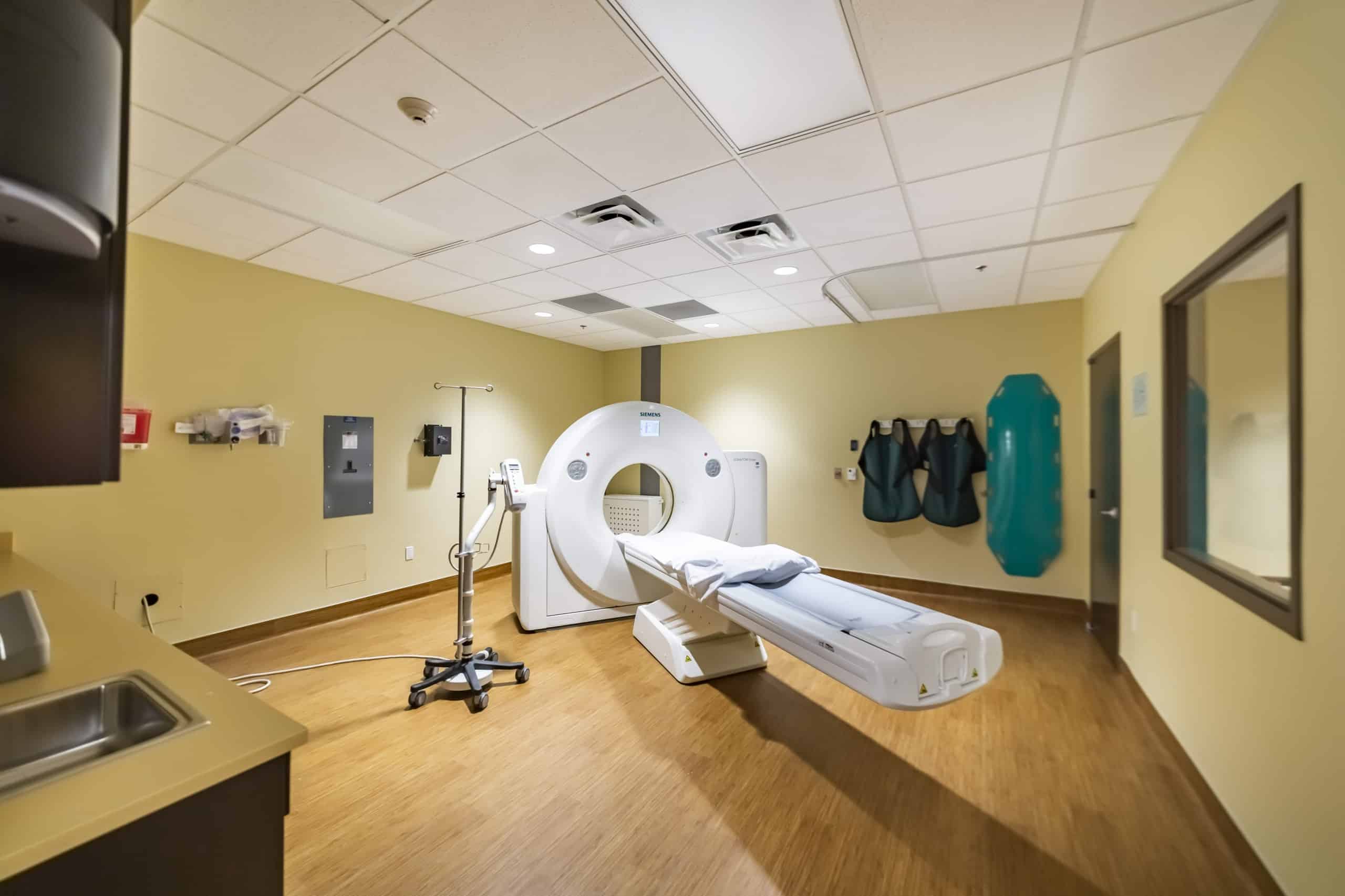Trauma and Neurological Services at Surepoint ER
Emergency Trauma and Neurological without the wait – no appointment needed.
At Surepoint Emergency Centers, we’re here for you 24/7, whenever emergencies strike. We have emergency physicians and ER nurses available to provide a variety of services for all of your needs. Whether it’s a fall, a car accident, or a health issue like a stroke or seizure, we’re ready with expert care and advanced tools to put your health first in critical situations.
Signs and Symptoms of Stroke
The CDC estimates that as many as 800,000 Americans will suffer from a stroke every year. When a person has a stroke, it means your brain isn’t getting the blood and oxygen it needs to function correctly. A stroke is caused by a burst blood vessel or plaque buildup in your arteries, resulting in a blockage or the formation of blood clots. A stroke can result in brain damage, physical disability, and even death.
Common symptoms of a stroke include:
- Numbness/weakness in your face, arms, or legs (one-sided)
- Difficulty speaking or understanding others
- Confusion, dizziness, or uncoordinated movements
- Sudden, severe headache, and loss of consciousness
- Trouble focusing
- Inability to walk
- Drooping face or arms
- Nausea
- Seizures
- Difficulty swallowing or eating/drinking
A stroke can happen quickly, so it’s important to act fast when you notice any of these signs or symptoms. It can be dangerous to try to drive yourself to a local emergency room. Instead, call 911 to take you to the nearest ER. Surepoint ER is ready and equipped to help you or your loved one during a stroke.
Signs and Symptoms of a Concussion
A concussion is a type of brain or head injury that may be caused by a sudden blow or hit to the head. While a concussion is typically temporary, it can have long-term effects and symptoms that may take days, weeks, or even longer to show up. Here are common signs you are suffering from a concussion and may require emergency medical care.
Common signs of a concussion include:
- Loss of consciousness
- Dizziness
- Headache
- Confusion/feeling dazed
- Amnesia
- Fatigue
- Nausea/vomiting
- Ringing in the ears
- Loss of balance
- Difficulty concentrating
- Sensitivity to light and noise
- Irritability/mood swings
- Insomnia
- Depression
- Loss of taste and smell
If you are experiencing any signs or symptoms of a concussion, it’s crucial to seek medical help right away. At Surepoint Emergency Centers we recommend that you seek treatment within 24 hours for the best results. Don’t wait; getting checked by a doctor can make a big difference in your recovery and long-term health.
Bone Fractures and Joint Dislocations
There are about 2 million fractures in the United States each year. However, knowing when to go to the ER for a fracture or dislocation can be tough to discern. At Surepoint ER, we recommend erring on the side of caution and going to your nearest ER if you think you might be suffering from a fracture or dislocation.
Common types of fractures treated at Surepoint ER include:
- Stress Fractures: A stress fracture is a small crack or severe bruising within a bone, often caused by overuse and repetitive activity. Stress fractures are common in weight-bearing bones of the lower body like the shin bone, and bones in the foot. Stress fractures can take a long time to show up, sometimes even years, and you might not notice them until they break.
- Compound Fractures: A compound fracture, also known as an open fracture, occurs when a broken bone punctures the skin and is exposed to the external environment. This type of fracture is serious due to the risk of infection from exposure to contaminants. It is often the result of high-impact trauma such as motor vehicle accidents, falls from height, or sports-related injuries.
Common types of dislocations treated at Surepoint ER include:
- Shoulder Dislocation: The shoulder joint is the most commonly dislocated joint in the body.
- Elbow Dislocation: The elbow is the second most commonly dislocated joint in adults. It usually occurs due to a fall onto an outstretched hand.
- Hip Dislocation: Hip dislocations are severe injuries usually resulting from high-energy trauma, like a car crash.
- Knee Dislocation: Knee dislocations are rare but severe injuries, usually caused by high-energy trauma.
- Knee Cap Dislocation: The knee cap can dislocate as a result of a sudden twist or direct impact.
- Finger and Thumb Dislocation: These are common injuries, often caused by a blow to the finger or forcefully overextending it.
- Ankle Dislocation: This involves the bones of the ankle joint being forced out of position, typically due to trauma or a sports-related injury.
- Wrist Dislocation: Typically involves the displacement of the carpal bones, often due to a fall on an outstretched hand.
The treatment for a fracture or dislocation can vary depending on the severity, location, age, and other medical history. In most cases, full recovery is possible. At Surepoint ER, you will be seen by an emergency room physician, who will typically treat your pain first. Then you may need an x-ray or other imaging. Specific treatment will vary. You may be given a splint, cast, boot, or even crutches depending on the location and severity of the fracture.
In some severe fracture cases such as a broken bone, surgery or prolonged hospital stay may be required. Surepoint ER can help with arrangements at other local surgical hospitals for further treatment.
At Surepoint Emergency Centers we work closely with many school sports teams, helping with injuries like fractures and dislocations. These injuries happen because of things like accidents, strains, or problems that can make your bones weaker.
Your Health Matters: Take Action and Don’t Overlook It

Your health should never be a gamble. Whether you think you might have a concussion or experiencing severe pain, our emergency centers are here for you around the clock, 24/7. Click the button below to find a Surepoint ER near you and get the care you need.





